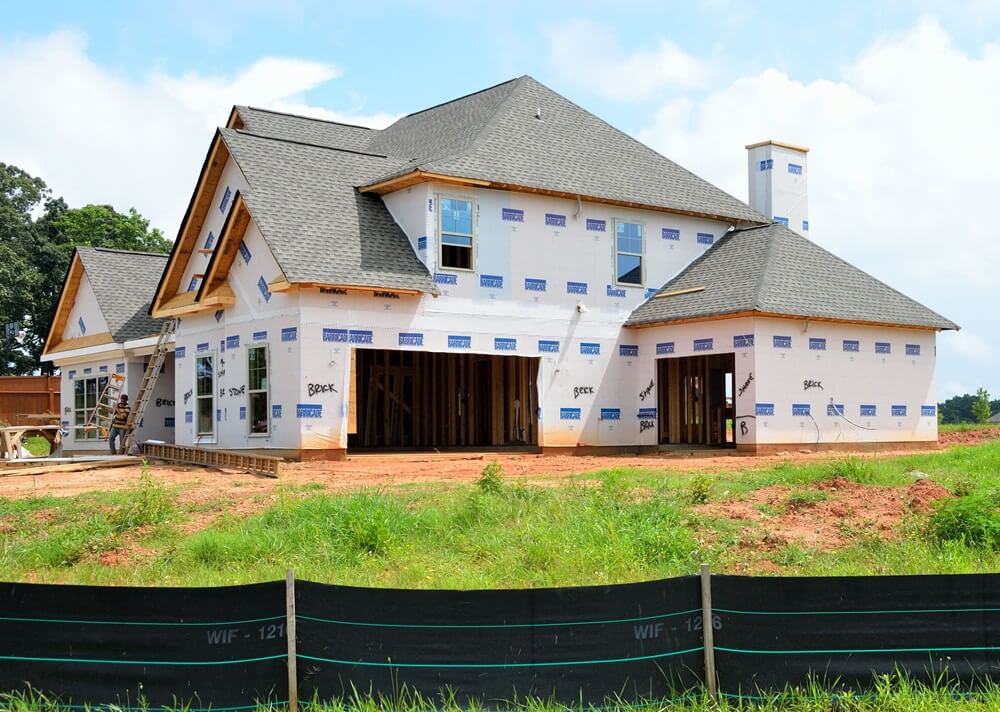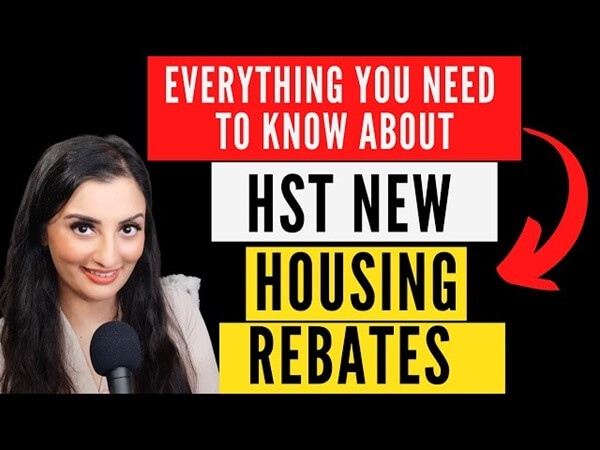
The recent housing boom has boosted the local economy, yet many home purchasers are ignorant of the available HST and GST housing rebates in Ontario. How can I avoid HST on my new home in Canada is a heated question these days. are rebates that allow home buyers to ask for a reimbursement and rebate of the GST/HST they paid on their residences which gets us to the next question, “How to avoid HST on new homes?”.
The rebate is given to homeowners who either bought a home from a builder or custom-built their own home. The HST housing rebate and GST housing rebate in Ontario are given to homeowners who purchase the property as their primary place of residence. Before moving on how to avoid HST on new homes, let’s dive into relevant information & make your relocation less stressful!
Table of Contents
What Does HST is Meant for?
In Ontario, the HST housing refund and GST housing rebate allow homebuyers to request repayment for the GST/HST they paid on their homes. Ontario enacted the Harmonised Sales Tax on July 1, 2010, raising the provincial tax on new residences from 5% (GST) to 13% (HST). In an effort to assist homeowners in dealing with the increased expense of purchasing a new home, the government implemented a rebate programme to reimburse buyers for a portion of the additional new home tax.
Importance of the HST on New Homes
The GST/HST new housing rebate allows an individual to recover a portion of the goods and services tax (GST) or the federal portion of the harmonized sales tax (HST) paid for a new or substantially renovated house that will be used as the individual’s or their spouse’s primary place of residence, provided all other conditions are met. To qualify for the Federal rebate, the entire purchase price of the residence must be less than $450,000; otherwise, one cannot recover the federal component of the HST paid.
Who Can & Can Not Qualify for the HST Rebate?
The only way you can exempt the HST and qualify for the rebate for new homes is available to anybody in the province who buys a new home or condo from a builder, or who hires a builder to build a new house. When purchasing a new home or condo for yourself or a family member, “How can I avoid HST on my new home in Canada” is frequently assigned to the vendor at closing, lowering the purchase price by the rebate amount.
This enables and exempts the home builder or condo developer to successfully promote a cheaper “sticker price,” increasing sales and making it easier for a buyer to qualify for a mortgage large enough to purchase the property.
The rebate is allowed for those who bought a home from a builder or built their own home. The HST and GST housing rebates in Ontario are given to homeowners who purchase the property as their primary residence. But, Who is exempt from HST in Canada? This is another debate. Let’s explore that too in a while.
Criteria for Fall Eligible for the HST Rebates on Homes

Individuals who are currently owning a new or renovated home and satisfy the following criteria:
- you must be a Canadian resident for tax purposes;
- The residence is located in Ontario and is intended for the use of the buyer or their spouse/common law partner.
- Furthermore, the federal incentive is only available for purchases under $450,000.
- You must be at least 19 years old, have a spouse/common law partner, and be or have been a parent who lives with your kid.
How Can You Exempt Or Avoid HST in Canada?
If your home is in Ontario, you may be eligible to claim a provincial new housing rebate to recover some of the provincial portion of the HST you paid to purchase the home. To be eligible for this rebate, you must have purchased a new or significantly modified house (including a new condominium unit) from a builder and meet the following requirements:
- If you own a house in Ontario and use it as your primary residence, you may be eligible for a GST/HST new housing rebate.
- If the purchase price is less than $450,000, you may still be eligible. This means that a provincial new housing rebate may be available even if a GST/HST new housing rebate for a portion of the federal HST is not.
- You purchased a new or significantly renovated house (this includes a condominium unit, a renovated house that has also had a large expansion, or a non-residential property that was transformed into a house) from a builder and paid all of the GST/HST payable on your acquisition;
- After the construction or restoration is largely done, you will acquire ownership of the house. No one occupied the house before possession is handed to you and after the construction or restoration is substantially completed;
- One of the following conditions applies: you or a relative of yours is the first resident of the house; or you made an exempt sale of the house before it is occupied by anyone.
- If the individual did not pay the provincial component of the HST when they purchased the land, the refund is equal to 75% of the provincial portion of the HST paid on eligible building costs only, up to a maximum of $16,080. The Federal Government additionally offers up to a $6,000 tax credit for new dwellings.
- There is no way to obtain a specific percentage of the rebate based on how much real estate you own; either everyone qualifies for the rebate or no one does.
In a Nutshell
As we unlock the secret behind How to avoid HST on new homes. HST is exempted because mortgage broker fees are not subject to HST if they are charged separately from any taxable real estate commissions. In addition, mortgages and mortgage interest are excluded from HST. We have also explored who is exempt from HST in Canada in detail. Keep on reading our blogs for more insights.
Related Articles
- Are Condos A Good Investment in Today’s Real Estate World?
- Is There Property Tax on Condos in Canada?
- Are Pre-Construction Condos a Good Investment?

My name is Adnan Khan and I am a realtor specializing in Pre-construction condos and homes sales.
I also do assignments of condos. You can contact me at 416-897-4714
Designation: P.Eng
Education: McMaster University, Engineering Technology
Specialty: Residential Real Estate
Experience: 15+
Area Covered: Downtown Toronto and Neighboring Area
Languages Spoken: English, Urdu





Leave a Reply